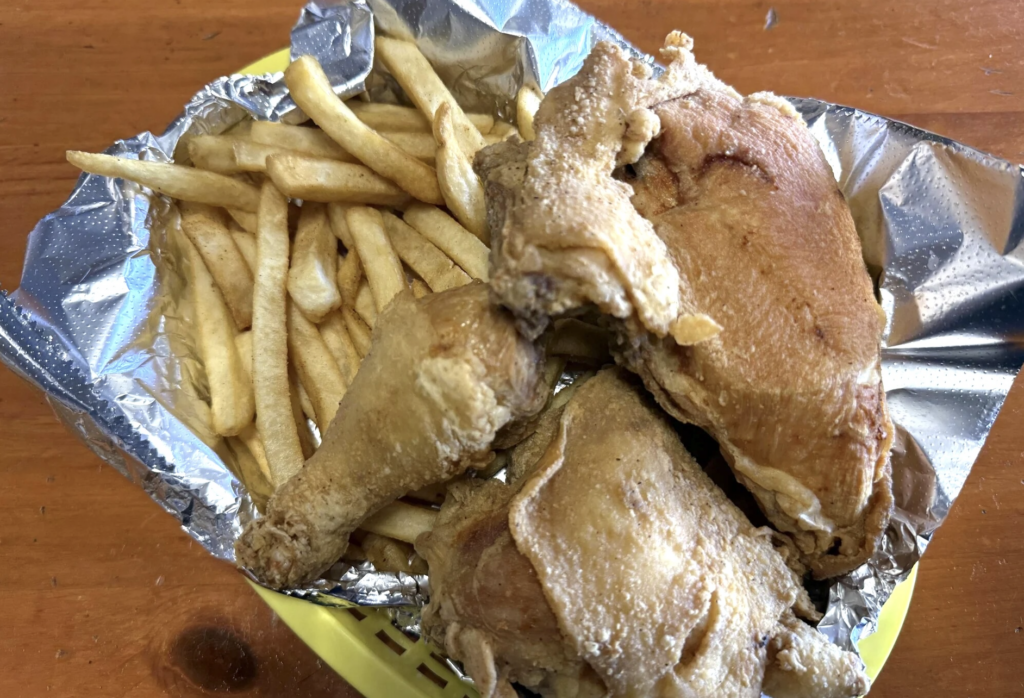Urban Cheap

A dozen years ago, I met two cocky Kansas businessmen who decided to open a restaurant. They seemed to know what they were doing — they hired a talented chef and spared no expense in creating a stylish and elegant dining room. Even the menu, printed on glossy card stock, was a work of art. Still, hundreds of thousands of dollars later, the restaurant turned out to be a spectacular failure. Maybe its high-fashion concept was ahead of its time — more likely, the two expensively dressed entrepreneurs didn’t really know how hard it would be to run a restaurant. It’s a tough business, even in a boom economy.
In this day of well-subsidized chain restaurants and franchise operations that have proven formulas for everything from server training to computerized bar pours, the idea of a fledgling restaurateur who opens his or her doors with little more than a good idea and a prayer seems, well, crazy. A shoestring potato is one thing, but in the restaurant business, a shoestring budget isn’t such an appetizing idea.
So what on earth is Mona Smith-Chase, the attractive, model-thin owner of a four-month-old luncheonette called Mona Lisa’s Deli, doing selling waffles and sandwiches on a stretch of 31st Street bounded by Cherry on the west and Holmes on the east that hasn’t had a restaurant — let alone many inhabited buildings — for decades? Is she mad? Sure, there’s the popular Kitty’s Café a couple of blocks east; and due west, where the Velvet Dog and the Empire Room rule a still-thriving night-life scene, the neighborhood is practically swinging. But daytime is a different story. Just across the street from those two popular venues, longtime caterer Bob Salzman finally closed his 22-year-old R.T.’s Deli last winter. “I was losing too much money,” he says.
Salzman sold his big brick building (which had cost a fortune to heat and cool, he says) to the Velvet Dog’s Chris Sefryn and moved his catering operation to the kitchen of the venerable Athenaeum Club on Linwood. Salzman was one of this neighborhood’s first urban pioneers. “When I opened my restaurant in the 1980s, there was no development in Union Hill,” he says. “There was nothing there — except the hookers who used to hang out in my front doorway.”
But over the past decade, most of the hookers moved to greener pastures, definitely not toward the boarded-up buildings near Cherry and 31st, where fate had taken such a cruel turn that the old Gillham Theater, an anchor of this neighborhood since the 1920s, went up in flames last year. And the baby-blue hulk right next to it, a bustling saloon since the 1940s, had its last call in the 1990s as a drag bar called Legends.
During World War II, the Legends space was called the Speedway Club, back when streetcars still zipped up and down 31st Street and the southeast corner was home to the busiest floral shop in the city, Ed’s Dainty Corsages, which took up most of the two-story building at 601 East 31st. Marva Wills, who bought the building last year to house her own business, House of Flowers, remembers Ed’s in its heyday. It was open 24 hours a day, and, Wills says, “Everyone went there.” Wills and her husband, Jack, are using only the front half of the building for their floral business, so they turned the back half over to their daughter, Mona Smith-Chase, for Mona Lisa’s Deli.
To say that Smith-Chase opened her little joint on a tight budget is an understatement. It’s not so much a restaurant as a tidy, no-frills sandwich shop, or what was once known as a “dinette.” It took up one narrow room in the building until April 23, when she turned an adjacent vacant storefront into a tiny dining room. When it was a solo room, the luncheonette had only a single table, set up between the picture window and the front counter. I sat at that lone table on my first visit, eating a microwaved — but who knew? — cheeseburger from a paper plate and sipping chicken noodle soup (that didn’t taste homemade and wasn’t) from a Styrofoam bowl while watching The Bold and the Beautiful on a little TV perched on a lace-covered console. I silently munched Doritos, entranced as the soap opera’s red-haired ingénue, Bridget, got roaring drunk with a bunch of randy sailors.
Smith-Chase’s charming but unorthodox dining room has three tables (one four-top, two deuces) and green leatherette office chairs that must date back to the 1950s. This room, a step down from the counter area, boasts a display window that Wills has decorated with an exotic tableau of faux orchids, stuffed animals, potted palms and a ceramic planter in the shape of a human foot. Alas, the TV remained upstairs in the other room, which still has a couple of stools — I sat on one to eat a veggie burger on a soft onion bun the very next day so I could make sure Bridget escaped from the sailors with her dignity intact. She did.
A few days later, I retreated to the quiet dining room (which has, like all the public spaces in this great old structure, soaring 12-foot ceilings covered in beautiful pressed-tin panels) for an early morning breakfast of strong black coffee in a Styrofoam cup and a fluffy waffle — slathered with butter, powdered sugar and syrup — on a paper plate. Smith-Chase makes her waffles fresh to order (she bought the waffle irons — and her meat slicer — from Salzman when he closed his deli), though her breakfast biscuits (which are surprisingly good and cheap) are premade products that she heats in the microwave.
“We don’t actually have a grill in here, but we make all of our cold deli sandwiches fresh to order,” she says. “And we do have toast and cold cereal and bagels here for breakfast, too.” And breakfast sandwiches, like a sausage-egg-and-cheese number, that taste as good as any QuikTrip version and are just as inexpensive.
Business has been hit-or-miss since the start of the war in Iraq, but Smith-Chase is fiercely optimistic. She’s been making a lot of box lunches for church groups in the neighborhood, and employees of the Velvet Dog and the Empire Room have stopped in to order sandwiches or soft drinks. She helped to cater the April 23 “kick-off celebration” for the local development group that plans to turn the nearby concrete-paved “triangle” between Gillham Road and Gillham Plaza into a green park surrounded by lofts and town homes.
“There’s a new energy in this neighborhood,” Smith-Chase says one day as she looks out the window of her deli’s main room. Across the street, a work crew is pulling off weathered plywood panels that for decades have masked the frosted-glass windows and façade of 600 East 31st. In the 1940s, this had been the White House Restaurant, with a billiards parlor next door and the Virginia Barbecue next to that. But that’s ancient history, back when 31st Street was a major east-west artery of a thriving inner city. The buildings across the street have been vacant for so long, Smith-Chase says, that she heard the city wanted to demolish them.
But something must be up. After stopping in for lunch the other day — sliced pastrami and Swiss on rye — I stepped out onto the sidewalk to watch the workmen strip away that long-hidden façade. I looked over at the opposite corner and saw a fresh-faced young man in a white shirt and pressed khaki shorts look up at the “For Rent” sign at 518 East 31st and scribble down the phone numbers. I wondered what he might be thinking of doing with the space. A restaurant? A nightclub? A Starbucks?
“It’s going to take some serious people with the right connections to totally turn this neighborhood around,” says Smith-Chase, sharing the mysterious smile of her restaurant’s legendary namesake. “But as far as today goes, I’m already here.”




